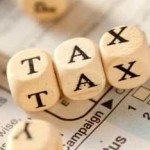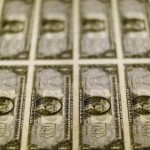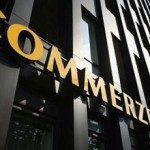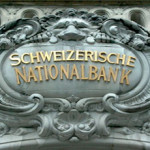Swiss Economy Returns to Growth as Franc Shock Overcome
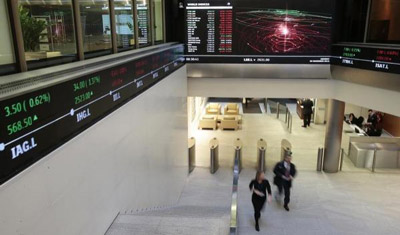
-
Fourth-quarter GDP rose 0.4% vs estimate for 0.1% increase
-
SNB expects growth to accelerate in 2016 versus last year
The Swiss economy returned to growth at the end of last year as it fought off the impact of a currency shock that had threatened to push the country into a recession.
Gross domestic product rose 0.4 percent in the fourth quarter — the most in a year — after shrinking 0.1 percent in the previous three months, the State Secretariat for Economic Affairs in Bern said on Wednesday.

Despite the better-than-forecast performance in the fourth quarter, the economy still suffered its worst year since 2009. That can be traced in part to last January, when the Swiss National Bank abolished its currency cap, sending the franc surging and hitting exports to the euro area. The central bank expects the economy to accelerate to about 1.5 percent in 2016 from 0.9 percent last year.
“The franc shock isn’t fully digested, but the Swiss economy is in a robust state,” said Cornelia Luchsinger, an economist at Zuercher Kantonalbank. “A year ago no one would’ve thought 2015 would wind up being as good as it was.”
China Headwinds
Adding to the headwinds has been a slowdown in China and other emerging markets, on which some Swiss exporters had pinned their hopes in a bid to offset weak demand in Europe. Exports of pricey Swiss watches, popular in China and Hong Kong, experienced their first annual drop since 2009 last year. The machine, electrical and metals sector reported a 14 percent slump in new orders, terming 2015 an “annus horribilis.”
“The franc is strong and the fact that the Chinese economy and the emerging markets are slowing down doesn’t help Swiss exporters,” said Ipek Ozkardeskaya, an analyst at London Capital Group. China “has an impact on the Swiss economy — more so than the euro zone or Britain,” she said.
Private consumption grew 0.1 percent in the fourth quarter compared with the third, the SECO data showed. Government expenditure increased by 0.6% and exports rose by 2.9 percent. Third-quarter GDP had initially been reported as stagnating.
SNB Policy
With the franc cap gone, the SNB has relied on negative interest rates and a pledge to intervene to keep the currency in check. The franc has weakened to an average of almost 1.10 per euro so far this year — versus 1.079 in the second half of 2015. It traded at 1.08487 at 10:50 a.m. in Zurich on Wednesday.
The issue for the SNB is the European Central Bank, which is forecast to increase stimulus again this month. That could weaken the single currency versus the franc and push Swiss central bank President Thomas Jordan to loosen policy in response.
The SNB’s deposit rate is already at a record low of minus 0.75 percent, yet SNB officials have said there’s potentially still room for a cut. Another alternative would be to lower the amount of bank reserves that are exempt from the negative rate, an option confirmed by Jordan in an interview last week.
Source: Bloomberg









